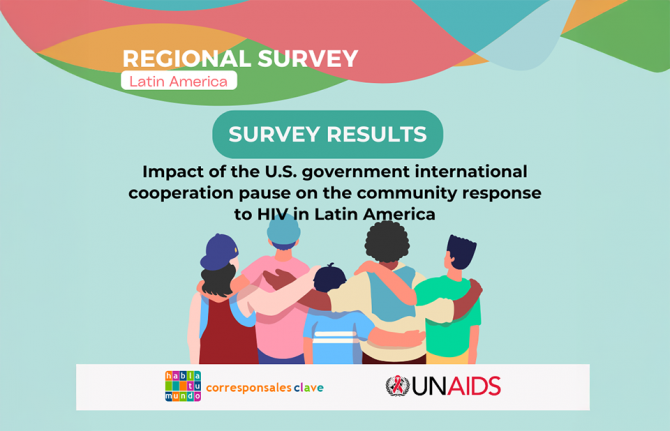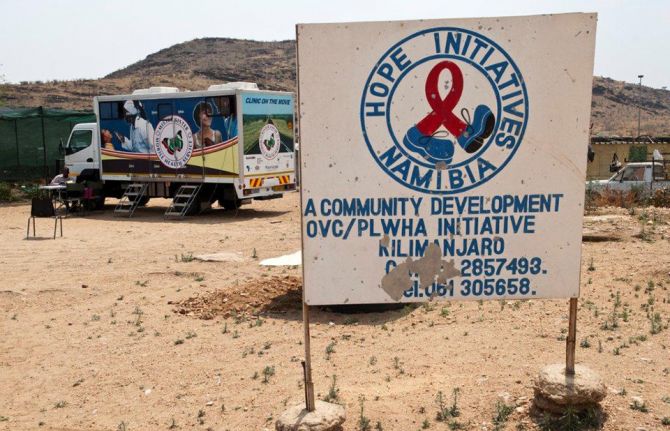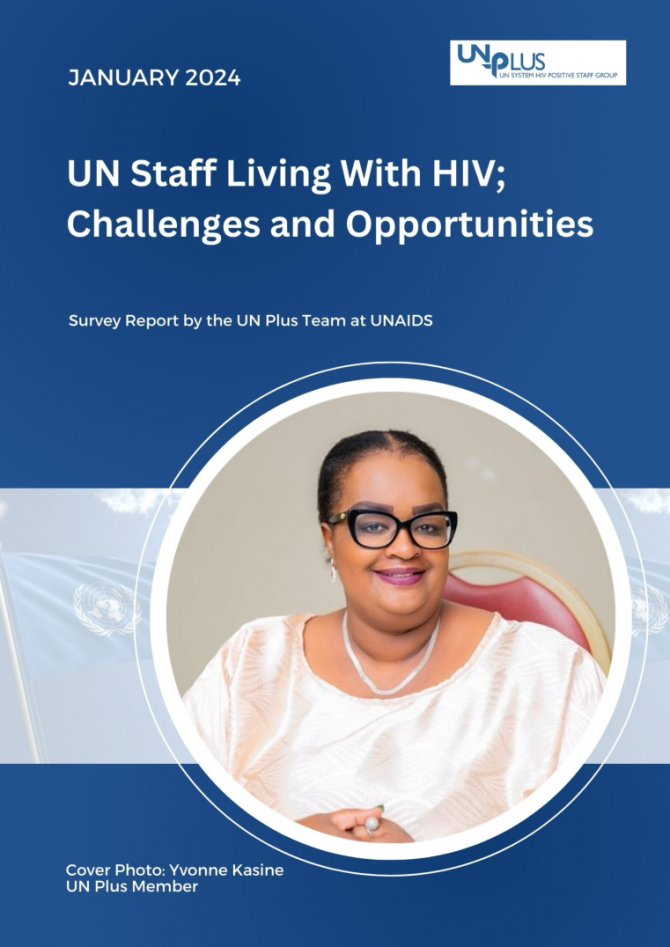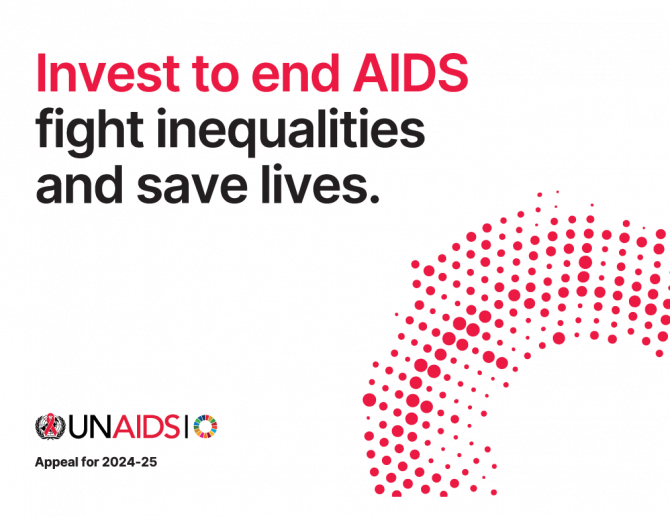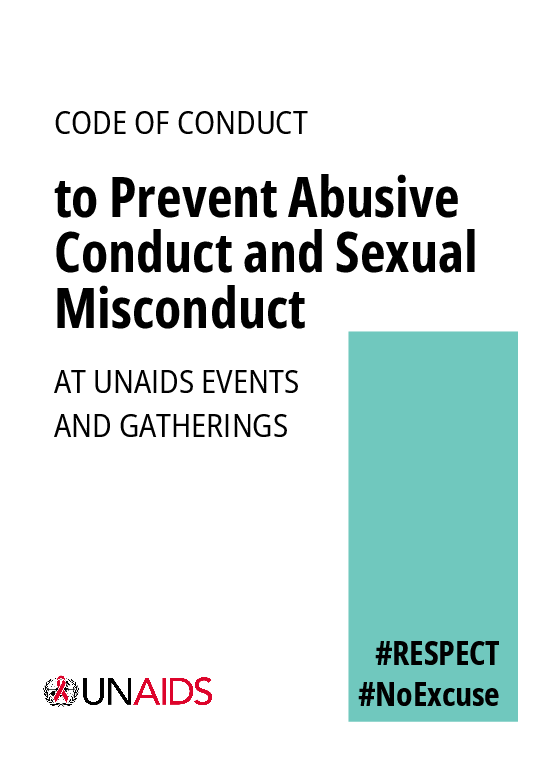UNAIDS in action


Feature Story
UNAIDS launches the development of the new Global AIDS Strategy 2026-2031
20 February 2025
20 February 2025 20 February 2025In the past two decades, HIV-related deaths have been reduced by more than half, and millions of people have gained access to life-saving treatment. Scientific breakthroughs, strong political commitment, and community leadership have transformed the HIV response. Yet, despite these remarkable achievements, the path to ending AIDS is still full of challenges.
Today, the HIV response is at a crossroads. Persistent inequalities, financial constraints, and emerging health threats risk derailing progress. The hard-won gains of recent decades must not only be safeguarded but accelerated. This is why UNAIDS is launching the development of the new Global AIDS Strategy 2026-2031, an ambitious, inclusive, and action-driven plan that will guide the global HIV response for the next five years and help end AIDS as a public health threat.
"To end AIDS as a public health threat by 2030, we must act with urgency, ambition, and innovation," said Winnie Byanyima, Executive Director of UNAIDS. "This strategy is an opportunity to rethink and strengthen the HIV response by listening to communities, addressing inequalities, applying the science, ensuring equal access to new innovations and leaving no one behind."
UNAIDS has dedicated 2024 to laying the foundation for this new strategy. A mid-term review of the current Global AIDS Strategy has highlighted the urgent need to accelerate HIV prevention, address societal barriers, and sustain progress in treatment. UNAIDS convened a Global Task Team, composed of experts from governments, civil society, multilateral organizations, and public health, to recommend bold, measurable, and evidence-informed targets for 2030.
The new strategy will be developed through an open and participatory process that brings together all HIV actors, including governments, civil society, people living with and affected by HIV, donors, UNAIDS co-sponsors, and the private sector. It will build on past successes while tackling the biggest challenges ahead.
UNAIDS estimates that by 2050, between 29 and 46 million people will still be living with HIV, all of whom will need access to treatment and support to live healthy lives and prevent onward transmission. Closing gaps in treatment, overcoming complacency, and removing structural and societal barriers that prevent people from accessing services will be essential. Countries must have strong and sustainable systems in place to provide adequate care.
This effort requires a truly multisectoral response bringing together health, finance, justice, education, and social welfare sectors to create a comprehensive approach. Integrating HIV services within broader healthcare systems must be done carefully to ensure high-quality, stigma-free services for everyone who needs them.
"The challenges are big, but so is our determination," said Ms Byanyima. "We have the knowledge, the tools, and the experience. Now, we must come together with political will, adequate resources, and collective action to end AIDS once and for all."
The development of the Global AIDS Strategy 2026-2031 is a crucial moment for the HIV response. UNAIDS invites all stakeholders to take part in this journey, share their ideas, and help shape this new strategy, and ensure it reflects diverse voices and experiences.
Ending AIDS is not just a possibility, it is a choice. The next five years will determine whether we seize this moment or allow progress to stall. The time to act is now."
Learn more
Related
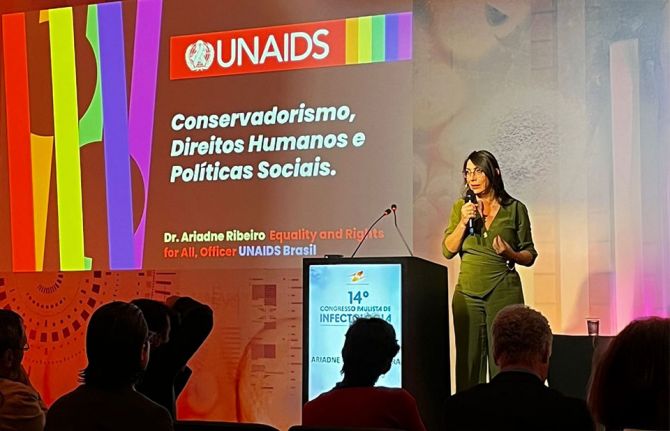 Upholding dignity for everyone: Ariadne Ribeiro Ferreira
Upholding dignity for everyone: Ariadne Ribeiro Ferreira

21 November 2024
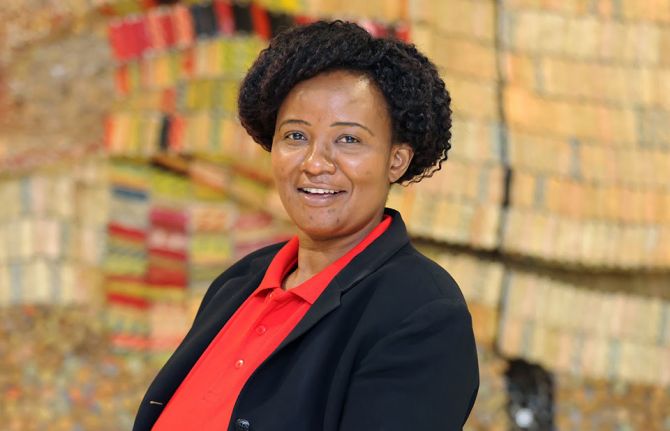 Evelyn Siula: A journey of strength and solidarity
Evelyn Siula: A journey of strength and solidarity
18 November 2024

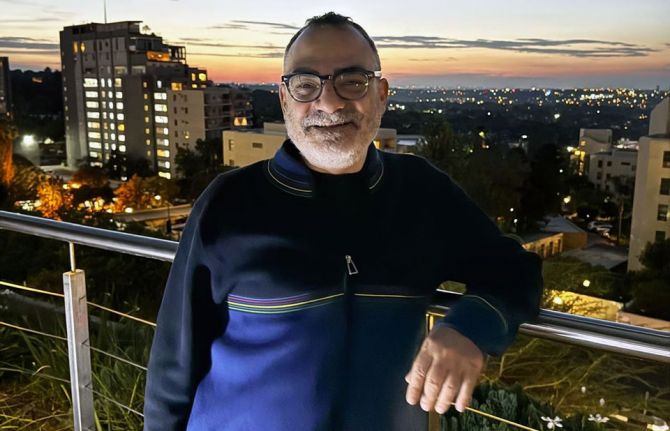
Feature Story
Christoforos Mallouris: From personal struggle to collective strength
29 November 2024
29 November 2024 29 November 2024Christoforos Mallouris' journey from humble beginnings in Cyprus to becoming a prominent global HIV advocate is a powerful story of personal transformation.
In his youth, Mallouris struggled with accepting his sexuality. "I couldn’t admit to myself that I was gay," shares Mallouris. The burden of self-stigma made it difficult for him to value his life: "In a way, I was homophobic towards myself and others."
At 29, while studying in Chicago, he was diagnosed with HIV. The diagnosis marked a pivotal moment in his life. "It changed how I understood myself, really forcing me to learn to value my life and accept who I am."
By the time he was diagnosed, he had already developed AIDS. Fortunately, Mallouris got support from his sister, who came to take care of him during his lowest moments.
Being HIV-positive in the United States as a foreign student presented its own set of challenges. "At the time, being HIV positive in the United States as a foreigner was illegal," Mallouris recalled, "so if the authorities found out, I would be deported." The fear of deportation hung over him as he was doing his PhD in astrophysics, but that fear also catalyzed his first act of activism.
Faced with health insurance that covered only two months of his costly HIV medication, Mallouris approached the Dean of Students at the University of Chicago. He boldly stated, "What are you going to do about it? I’m sure you don’t want this to go to the press." To his surprise, the Dean took immediate action, negotiating better health insurance coverage for all students with chronic illnesses.
As Mallouris’ health improved, he began to question his career path. Although he had completed his PhD in astrophysics, he no longer felt fulfilled enough by that field. He sought something that connected directly to being able to help people.
After securing a postdoctoral position at the Institute of Astrophysics in Paris, Mallouris found himself increasingly drawn to HIV work, so he started volunteering at a local NGO focused on HIV education and prevention for non-French speakers in Paris. It wasn’t long before he realized that this work was where his heart was.
He joined the Global Network of People Living with HIV, managing community empowerment programs in the HIV response. "I changed my career because of my HIV status," he said. "I wanted to do something that truly impacts lives."
Mallouris has had to overcome stigma and discrimination throughout his journey. Dating, for instance, was difficult. "There was a lot of rejection as soon as people found out I was HIV-positive," he shared. But despite the challenges, he found strength in the support of his friends, who have stood by him unconditionally. "I am lucky to have a strong network of support."
Mallouris joined UNAIDS in 2013, first as a Community Mobilization Advisor in Geneva and later as an Equality and Rights Advisor in Johannesburg. He describes UNAIDS as a supportive and inclusive workplace, where he feels valued for his skills and experience.
Mallouris highlights that the work to help secure treatment for people living with HIV is inseparable from the work to secure the recognition of people living with HIV as equal human beings. "Success in the HIV response depends on accepting all people, especially the most marginalized members of society.”
Mallouris is proud as he looks back, and hopeful as he looks ahead. He will always speak out for the rights of communities, even when—especially when—it isn’t popular.
HIV may have started as a burden in his life, but over time, it has become his strength, guiding him towards work that makes a profound difference, advancing a world where everyone is safe, has a place, and is welcome.

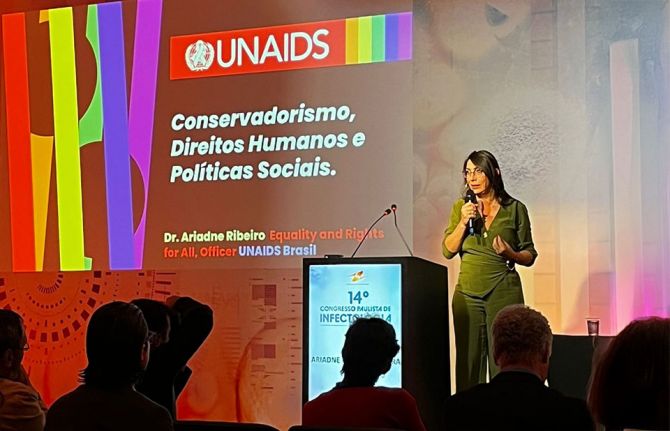
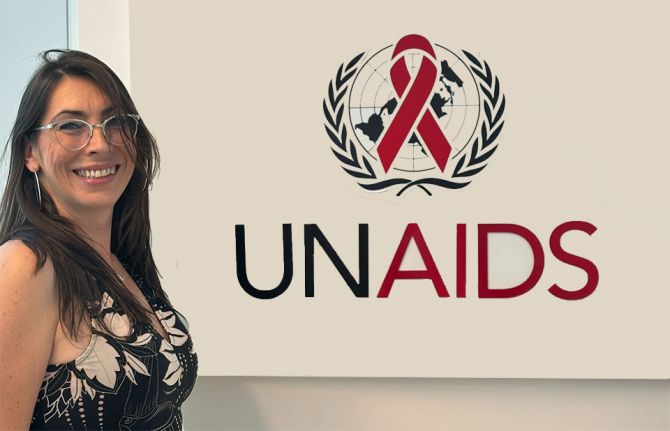
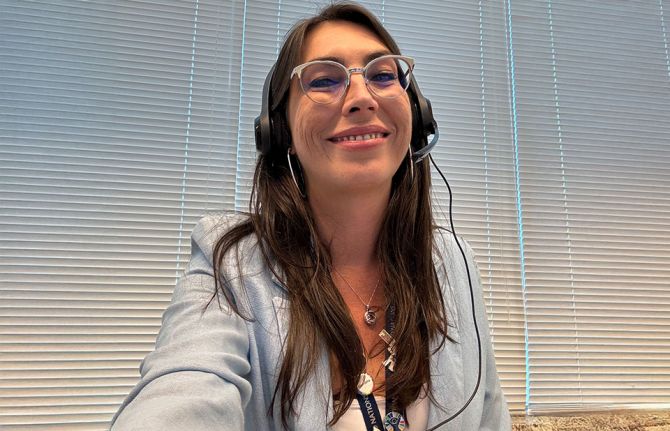
Feature Story
Upholding dignity for everyone: Ariadne Ribeiro Ferreira
21 November 2024
21 November 2024 21 November 2024Now 43 years old, Ariadne Ribeiro Ferreira, a trans woman working for UNAIDS in Brazil, advocates to leaders and speaks to media around the world. As she is an inspiration to colleagues, many are keen to learn more about Ariadne’s story.
From a young age, Ariadne sensed that she was different from those around her. “When my sister arrived, I understood, as a child, that I was like her,” Ariadne recalls.
Ariadne's situation, already challenging, became dangerous when her mother remarried. “My stepfather would beat me almost every day, berating me for my lifestyle,” she recalls.
At just 13, Ariadne was forced to flee her home. "I had no choice," she remembers. Despite these difficulties, she was fortunate to have a caring grandmother who took her in and provided support. “My grandmother was different from the rest of the family. She was like a teacher to me,” Ariadne reflects. Her grandma had a transgender friend named Zeze, an activist who also inspired her.
At the age of eighteen while living with her grandmother, Ariadne’s life took a turn when she heard on the radio that a local hospital would begin offering sex change surgeries with state support. “My grandma was overjoyed at the news and danced for me,” Ariadne recalls with a smile. Shortly after Ariadne began her transition.
However, that same year she experienced a traumatic event when she contracted HIV after being raped. Despite this devastating ordeal, she refused to give up. She began treatment and continued her life with determination and resilience.
By the age of 24, she had completed all her surgeries, and she had been legally registered a woman. Ariadne officially changed her name on all her documents.
She pursued education to open up opportunities. “I had the chance to specialize at UNIFESP, the second-best university in Brazil. Since then, I have continued my education, earning a specialization, a master’s degree, and recently a Ph.D.”
Ariadne began her healthcare career in Itanhaém, where she worked in a peer education program at a health facility and contributed to a cooperation agreement with the State Government. “I focused on HIV prevention programs, gaining visibility as one of the few transgender professionals at the time,” she explains. “This recognition opened up new opportunities for me.”
Reflecting on her proudest achievements, Ariadne highlights her work with homeless individuals in São Paulo, Brazil and her role in establishing the state’s first shelter for homeless transgender people. Following these accomplishments, she joined UNAIDS in 2019, where she continues to advocate for transgender rights and supports people living with and affected by HIV, using her voice to uplift and empower others.
Ariadne's makes use of her extensive experience to champion the rights and well-being of everyone living with HIV, including UN staff. Working with UN Plus, she is pioneering innovative strategies to uphold dignity in every workplace. Building a future free from stigma and discrimination, say Ariadne and UN Plus, is how to enable everyone to perform at their best, and to thrive.
Region/country


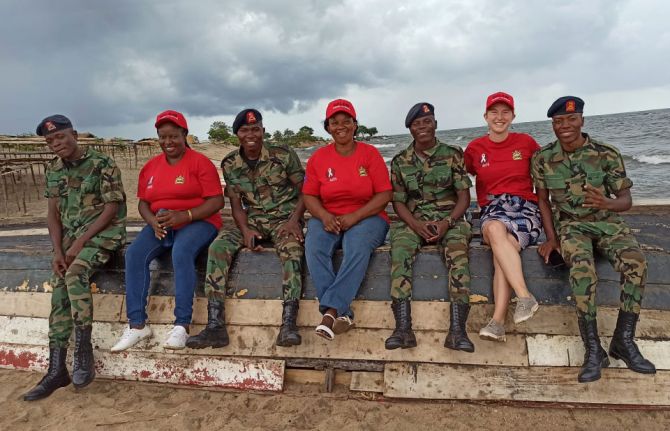
Feature Story
Evelyn Siula: A journey of strength and solidarity
18 November 2024
18 November 2024 18 November 2024After Evelyn Siula’s husband died, she knew she had to get tested for HIV. The result came back as positive.
"I had prepared myself mentally for either outcome, but it was still a shock."
She was jobless and with three children to care for.
The stigma and discrimination surrounding the virus meant that many people were scared to disclose their status. "I had three friends whose families rejected them because their HIV status became known,” Evelyn shares.
But Evelyn chose to break the silence early, starting by telling her young daughter. Family support played a crucial role in Evelyn’s journey. Her family stood by her, offering constant encouragement and strength, vital for getting through the many challenges.
Stigma followed Evelyn. She recalls a particularly painful moment: “At a community gathering, someone pointed at me and asked, ‘Can you believe she’s HIV-positive?’ It was one of the worst experiences being talked about like that.”
Evelyn became a strong advocate for people living with HIV, standing up to stigma everywhere, including in her church. At a gathering in a church, when a speaker criticized people living with HIV, she shared her own status as HIV-positive and as a church elder. Her openness has helped challenge stigma and gain support. Through her work she learned that many fellow church members were struggling in silence, and so helped create the Livingstonia Synod Positive Christians group, known as LISAP+.
Despite her bold advocacy, Evelyn acknowledges how mental health challenges, particularly fear and anxiety, have affected her. “I have thoughts like: ‘What if something happens to me? What if I die?’ I worry about my children and how they would manage without me. These are the fears that raise my blood pressure.”
But over time, Evelyn’s diagnosis has become not just a challenge but also a source of strength.
Today, Evelyn works for UNAIDS and is the vice chair of the UN Plus Advisory Group. She is proud to show that people living with HIV are leading healthy and productive lives.
She has completed Bachelor’s and Master’s degrees in business administration. “The day I graduated with my Master’s degree was extra special because I graduated alongside my eldest son. It’s rare for a mother and son to share such a moment.”
Evelyn encourages everyone to ensure they know their HIV status as the first step to taking control of their health: “Please get tested. It's just a status. If you're positive, follow the advice of your doctors. There is full life after testing HIV positive. Take your medication religiously, eat well, and live a healthy life.”
“Never stigmatize anyone,” says Eveyln, “because we are all one.”
Region/country

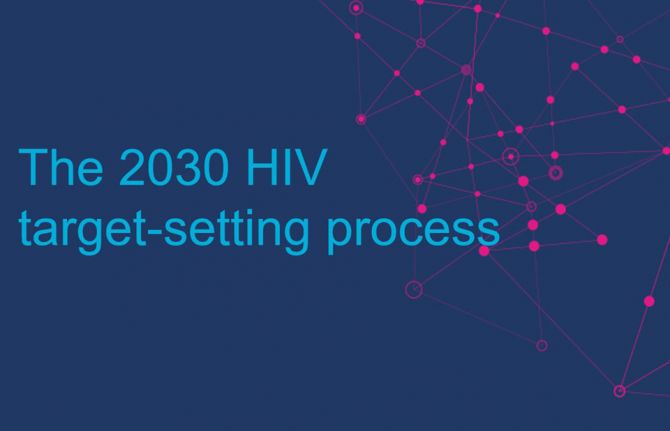
Feature Story
Developing the 2030 recommended HIV targets: framing the future of the HIV response
26 July 2024
26 July 2024 26 July 2024UNAIDS has launched the 2030 target-setting process that will provide the framework for the next Global AIDS Strategy. A Global Targets Task Team (GTT) composed of 33 experts from governments, civil society and communities, donors, multilateral organizations and academic public health experts will propose the targets building on the targets set for 2025. The Global Task Team is co-chaired by Chewe Luo, former Director HIV at UNICEF and Michel Kazatchkine, former Executive Director at the Global Fund.
The targets and strategy will underpin and inform the June 2026 High Level meeting on AIDS. The 2030 HIV targets will provide milestones within the SDG 2030 targets of reducing new HIV infections and AIDS-related deaths.
As highlighted in the July 2024 Global AIDS Update – the Urgency of Now : AIDS at a crossroads, there will be millions of people living with HIV in 2030 and beyond. The next set of targets will focus on the services and systems that countries need to have in place to ensure a sustainable country-owned response after 2030.
In defining the targets, the GTT will consider the balance of proposed thematic areas, measurability, evidence of impact of interventions, gender-sensitivity and human rights. These targets will only be successful if they are adopted by countries. Ensuring their relevance to countries and country engagement will be fundamental to this process.
The GTT has been undertaking an initial scoping phase and will work until November 2024 to develop a set of recommended targets to UNAIDS. These targets will become the foundations of the next Global AIDS Strategy consultation process.
Related

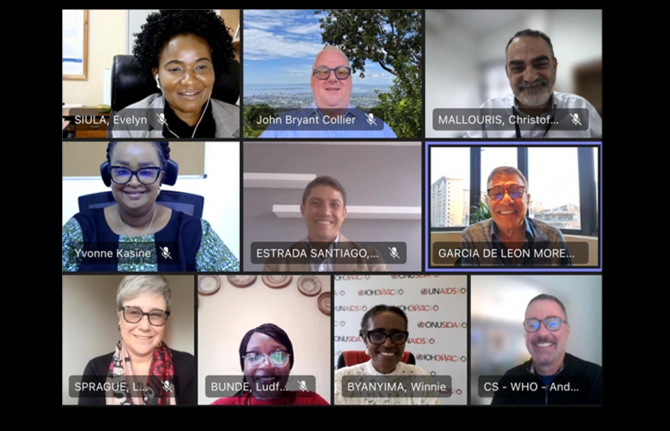

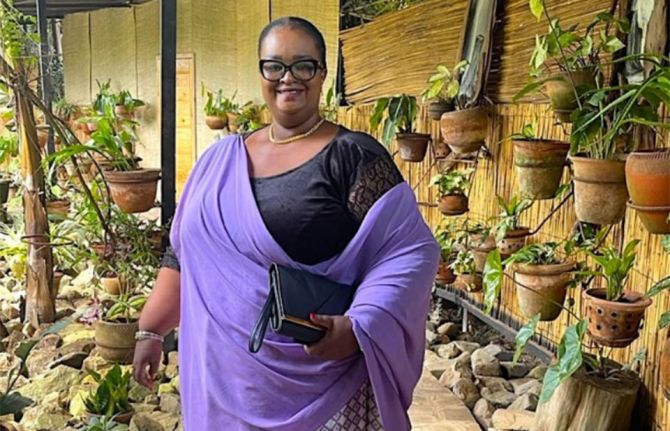
Feature Story
UN Plus relaunches to support and advocate for UN workforce members living with HIV
28 May 2024
28 May 2024 28 May 2024UN Plus, the association of United Nations (UN) staff members living with HIV has been re-established.
Originally created in 2005 to advocate for the rights and well-being of UN staff members living with HIV around the world, the association paused its operations in 2021 due to global changes and funding challenges. Now, a newly established nine-member advisory committee from various UN entities and regions around the world is working again to ensure that UN staff members living with HIV have access to medications, health insurance benefits, and mental health support, as well as to actively combat HIV-related stigma and discrimination within the UN system.
“I want to express my gratitude for the admirable work that you are doing to revitalize the UN Plus mission,” said Winnie Byanyima, UNAIDS Executive Director. “Together we can make a difference, let’s ensure a safe, supportive UN environment for all, which must include people living with HIV,” she added.
As part of its revitalization efforts, UN Plus members conducted a global survey in late 2023 to understand the experiences and challenges of their colleagues living with HIV. 74 respondents from diverse backgrounds shared their experiences with stigma, discrimination, and health-related issues.
The survey findings underscored that many UN workforce living with HIV still face workplace stigma and discrimination, which negatively affects their professional opportunities and personal well-being. Mental health concerns were also prominent, often stemming from issues related to their HIV status.
UN Plus will work closely with UN agencies, to develop and implement policies that specifically protect the rights of its staff living with HIV. This includes advocating for non-discriminatory hiring practices and career advancement opportunities.
John (JB) Bryant Collier, Chair of UN Plus Advisory Group stated that UN Plus will address those issues through a comprehensive plan informed by the survey findings. “UN Plus is committed to making UN workforce members living with HIV feel supported and empowered wherever they are in the world,” he said.
UN Plus plans to introduce training programs for UN staff members to raise awareness about HIV and HIV-related stigma and discrimination and mental health issues, as well as the importance of supportive workplace environments.
In addition, UN Plus will work to ensure that UN staff members living with HIV have access to the latest treatments and medications and will set up mechanisms for regular monitoring and reporting on their status and well-being, including periodic surveys and feedback sessions to continually adapt and improve the provision of support services.
The relaunch of UN Plus signifies a strong commitment to improving the work environment and overall well-being of UN workforce members living with HIV, and to ensuring they receive the support and resources necessary to thrive professionally and personally.
Related
 U=U can help end HIV stigma and discrimination. Here’s how
U=U can help end HIV stigma and discrimination. Here’s how

27 February 2025
Documents
UN staff living with HIV; challenges and opportunities — Survey report by the UN Plus team at UNAIDS
04 March 2024
The UN Plus global survey provides valuable insights into the experiences of UN staff living with HIV, emphasizing the need for ongoing advocacy, support, and a renewed focus on mental health care. The organization's commitment to adapting to the evolving global landscape is crucial for ensuring the well-being and inclusion of individuals living with HIV within the UN community.
Related
 U=U can help end HIV stigma and discrimination. Here’s how
U=U can help end HIV stigma and discrimination. Here’s how

27 February 2025
 How the shift in US funding is threatening both the lives of people affected by HIV and the community groups supporting them
How the shift in US funding is threatening both the lives of people affected by HIV and the community groups supporting them

18 February 2025
Impact of community-led and community-based HIV service delivery beyond HIV: case studies from eastern and southern Africa
30 January 2025
 Lost and link: Indonesian initiative to find people living with HIV who stopped their treatment
Lost and link: Indonesian initiative to find people living with HIV who stopped their treatment

21 January 2025
A shot at ending AIDS — How new long-acting medicines could revolutionize the HIV response
21 January 2025
Indicators and questions for monitoring progress on the 2021 Political Declaration on HIV and AIDS — Global AIDS Monitoring 2025
17 December 2024
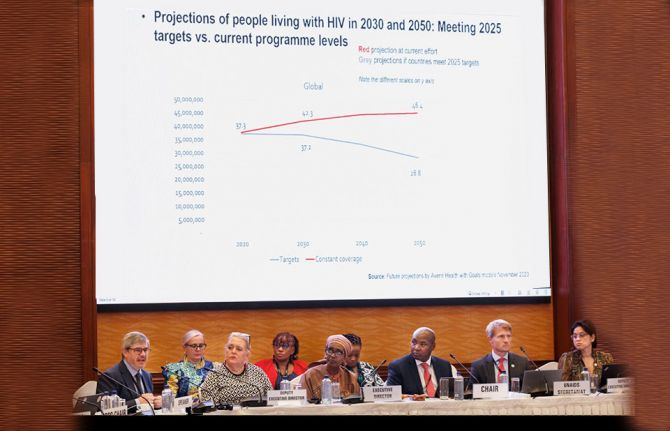 Global leaders commit to accelerating global efforts to end AIDS as a public health threat by 2030
Global leaders commit to accelerating global efforts to end AIDS as a public health threat by 2030

13 December 2024
UNAIDS data 2024
02 December 2024
Documents
Invest to end AIDS, fight inequalities, and save lives — UNAIDS appeal for 2024-2025
26 March 2024
As the UN's only cosponsored Joint Programme, UNAIDS has spearheaded a coordinated, multisectoral HIV response for nearly 30 years. The 2021 UN Political Declaration on HIV and AIDS, supported by UNAIDS' Global AIDS Strategy 2021-2026, charts a clear path to end AIDS as a public health threat by 2030. Taking this path is a sound political and financial choice that will save lives. We need a fully funded Joint Programme to drive the last mile, deliver SDG 3.3 and sustain progress.
Related
 How the shift in US funding is threatening both the lives of people affected by HIV and the community groups supporting them
How the shift in US funding is threatening both the lives of people affected by HIV and the community groups supporting them

18 February 2025
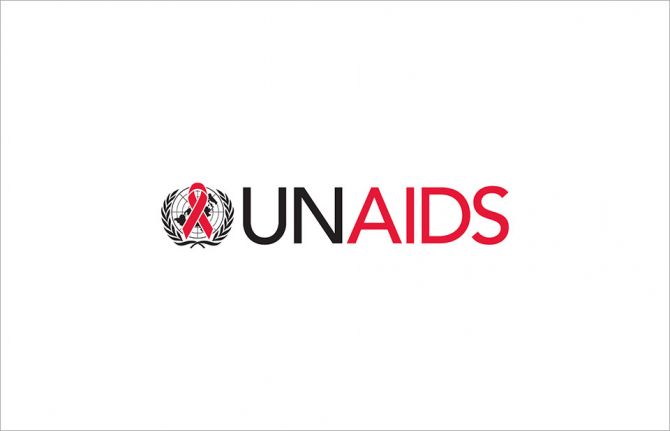 UNAIDS urges that all essential HIV services must continue while U.S. pauses its funding for foreign aid
UNAIDS urges that all essential HIV services must continue while U.S. pauses its funding for foreign aid

01 February 2025
Impact of community-led and community-based HIV service delivery beyond HIV: case studies from eastern and southern Africa
30 January 2025
Documents
Code of conduct to prevent abusive conduct and sexual misconduct at UNAIDS events and gatherings
26 February 2024
The Code of Conduct applies to any UNAIDS event or gathering, which shall include but is not limited to meetings, conferences and symposia, assemblies, receptions, scientific and technical events, expert meetings, workshops, exhibits, side events, and any other forum organized, hosted or sponsored in whole or part by UNAIDS. Such UNAIDS event or gathering, whether it is organized, hosted, or sponsored by UNAIDS, may take place in person or online, within/on or outside UNAIDS premises.
Related
Impact of community-led and community-based HIV service delivery beyond HIV: case studies from eastern and southern Africa
30 January 2025
A shot at ending AIDS — How new long-acting medicines could revolutionize the HIV response
21 January 2025
Indicators and questions for monitoring progress on the 2021 Political Declaration on HIV and AIDS — Global AIDS Monitoring 2025
17 December 2024
 Global leaders commit to accelerating global efforts to end AIDS as a public health threat by 2030
Global leaders commit to accelerating global efforts to end AIDS as a public health threat by 2030

13 December 2024
UNAIDS data 2024
02 December 2024
Take the rights path to end AIDS — World AIDS Day report 2024
26 November 2024
 Upholding dignity for everyone: Ariadne Ribeiro Ferreira
Upholding dignity for everyone: Ariadne Ribeiro Ferreira

21 November 2024

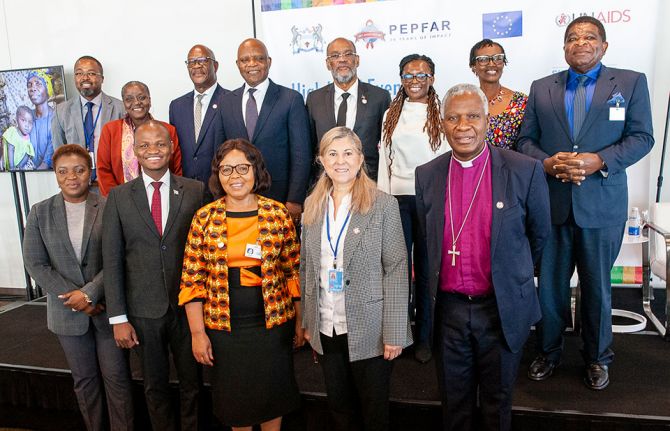
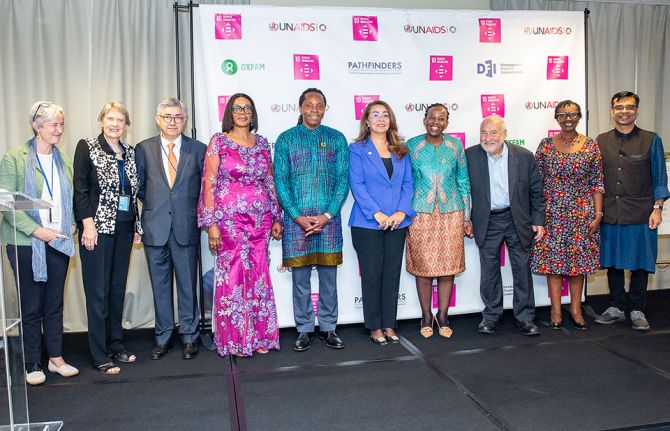
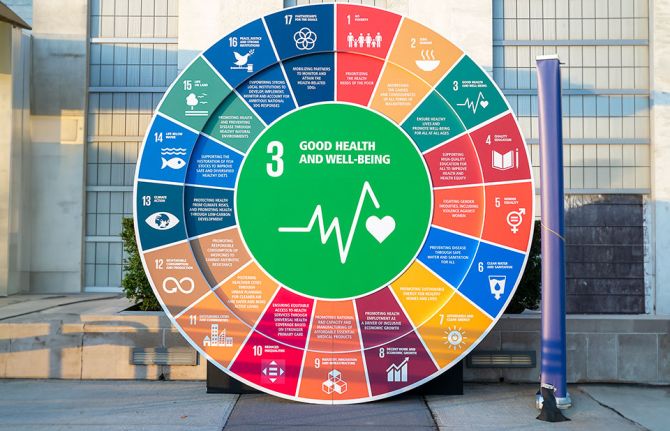
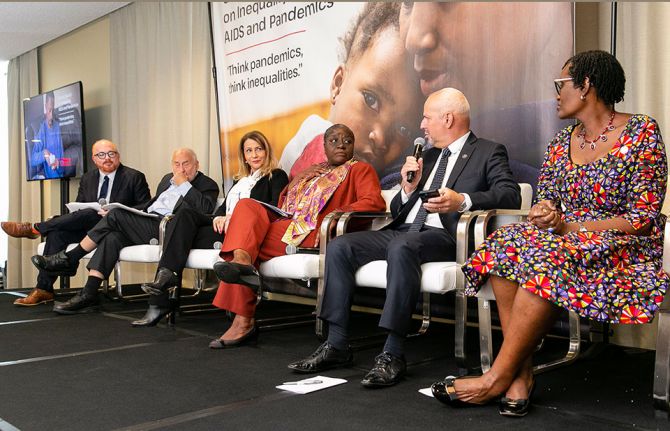
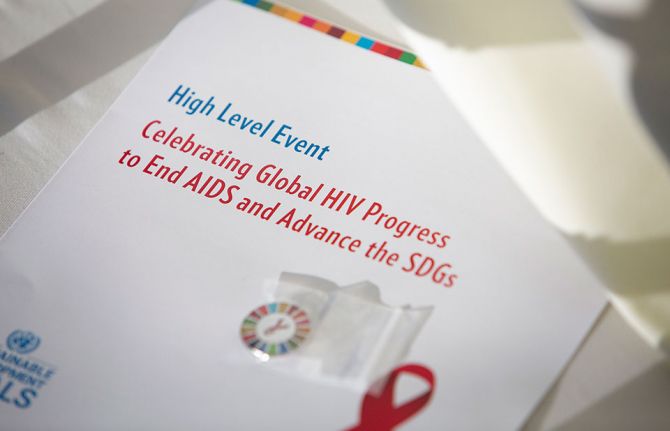
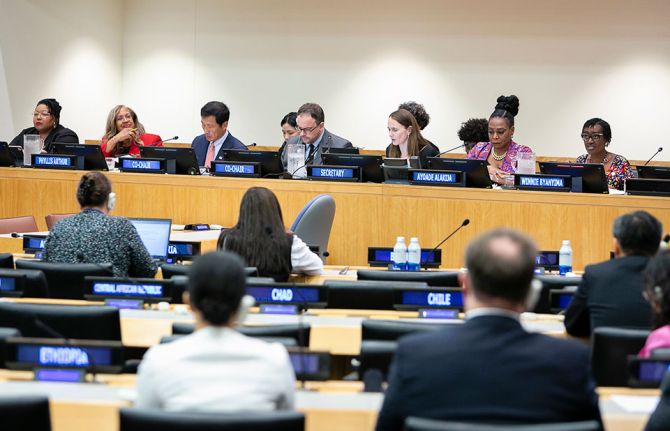


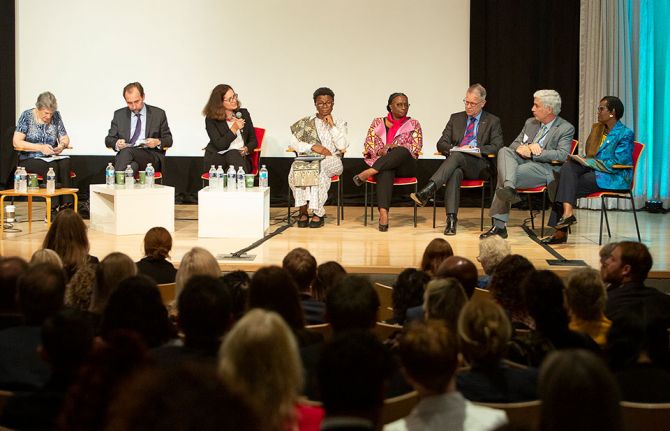
Press Release
UNAIDS’ key takeaways from the 78th United Nations General Assembly
29 September 2023 29 September 2023GENEVA, 29 September 2023—The topic of the global AIDS response—including its successes and invaluable lessons for handling pandemics—permeated many discussions during last week’s United Nations General Assembly (UNGA) in New York. From three High-Level meetings on health, to the Sustainable Development Goals (SDG) Summit to remarks given to the General Assembly and at High-Level Side events, the lessons from 40 years of responding to HIV—including the principle of leaving no one behind—were repeatedly referenced in the context of a future of health and equality for all.
In his remarks to the General Assembly, United States President Joe Biden referenced success against AIDS as a platinum example of what global solidarity and shared responsibility can achieve. “HIV/AIDS infections and deaths plummeted in no small part because of PEPFAR’s work in more than 55 countries, saving more than 25 million lives,” said President Biden. “It’s a profound testament to what we can achieve when we act together when we take on tough challenges and an admonition for us to urgently accelerate our progress so that no one is left behind.”
At the opening of the SDG Summit, Irish prime minister, Leo Eric Varadkar noted that half-way to the 2030 targets we are not where we would wish to be with only 15% of the SDGs on target. He added that despite this there is progress. “More than 800 million people have been connected to electricity since 2015, 146 countries have met or are on track to achieving the under-five mortality target, and effective HIV treatment has halved global AIDS-related deaths since 2010,” said Mr Varadkar. “This progress shows that change is possible, that backsliding is not inevitable, and that poverty, pollution and gender inequality are not pre-ordained. They are trends that can be reversed, problems that can be solved and tragedies that can be averted.”
While celebrating the collective success against AIDS, UNAIDS urged leaders to keep HIV high on political agendas for three reasons. “Firstly,” said Winnie Byanyima, Executive Director of UNAIDS, “The job is not yet done—43 years into the pandemic, there are still more than 9 million people waiting for life-saving treatment, more than 1.3 million new HIV infections every year and AIDS took a life every minute in 2022. Secondly: We know how to end AIDS and, we have the path and the power to do it. And thirdly: The AIDS response is a smart investment yielding other health, social and economic impacts.”
A number of ministers and heads of state spoke about the economic challenges they face as the result of multiple and concurrent crises, and the need for cooperation and solidarity to overcome these crises while continuing to make critical investments in development and health. Many political leaders noted that while the political will is there, there are not enough domestic resources to invest in health, education and social protection.
The UN Secretary-General Antonio Guterres reminded the international community that there is an urgent need to rethink—and reconfigure--the international financial architecture in order to achieve the SDGs. The same is true for UNAIDS's mission to end AIDS as a public health threat and ensure those gains are sustained well beyond 2030. Ending AIDS requires new and sustained resources, and a different political discourse on funding for development. UNAIDS highlighted the importance for maintaining bilateral funding for PEPFAR and multilateral funding for the Global Fund to Fight AIDS, TB and Malaria.
UNAIDS stressed that as we develop a global architecture for pandemics prevention, preparedness and response, we need to draw from over 40 years of responding to AIDS, because the AIDS response is pandemic prevention, preparedness and response.
The importance of community-led responses as essential to reaching marginalized groups and people most affected by pandemics was emphasized. UNAIDS highlighted that the Pandemic Accord must acknowledge the central role of community-led responses and commit member states to include communities and civil society in decision-making, planning, preparation, implementation and monitoring.
The call to end inequalities was a central theme to UNAIDS’ messaging at UNGA. UNAIDS highlighted the need for equitable, affordable access to life saving medical products and how inequality drives, and prolongs, pandemics. UNAIDS advocated metrics, targets and accountability systems for focusing the response and additionally for advancing human rights to improve public health and warned that human rights violations undermine trust and drive people away from health services.
Finally, UNAIDS called for a multisectoral/whole of society approach to effectively prevent, prepare for and respond to pandemics because pandemics are not merely health crises—they also present political, social and economic challenges which require transformative action by all.
The Executive Director of UNODC, Ms Ghada Waly, on behalf of UNAIDS’ cosponsoring organizations acknowledged that, “The multi-sectoral partnership on HIV/AIDS is as important as ever, bringing together the expertise, assets and comparative advantages of 11 Cosponsors in an exemplary partnership for the development approach of the SDGs.”
UNAIDS
The Joint United Nations Programme on HIV/AIDS (UNAIDS) leads and inspires the world to achieve its shared vision of zero new HIV infections, zero discrimination and zero AIDS-related deaths. UNAIDS unites the efforts of 11 UN organizations—UNHCR, UNICEF, WFP, UNDP, UNFPA, UNODC, UN Women, ILO, UNESCO, WHO and the World Bank—and works closely with global and national partners towards ending the AIDS epidemic by 2030 as part of the Sustainable Development Goals. Learn more at unaids.org and connect with us on Facebook, Twitter, Instagram and YouTube.


